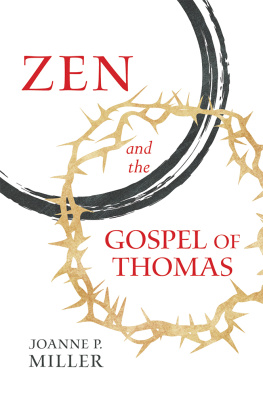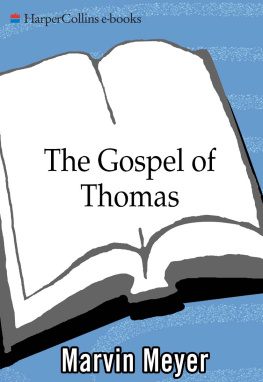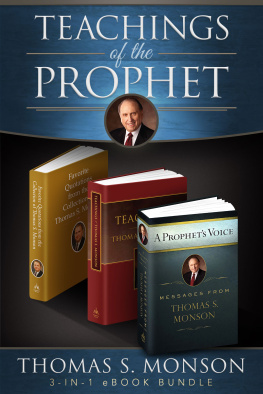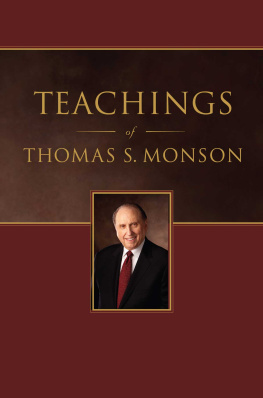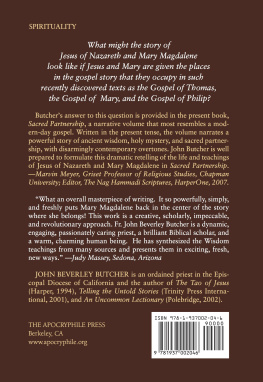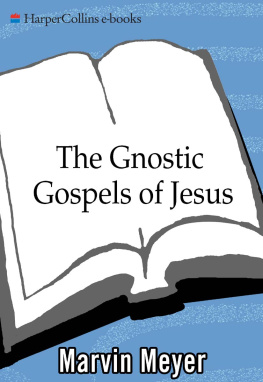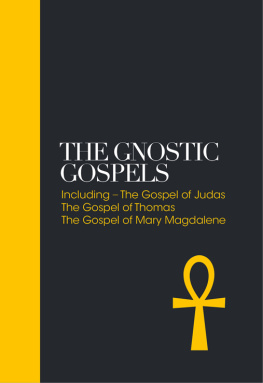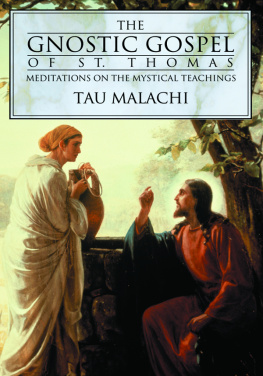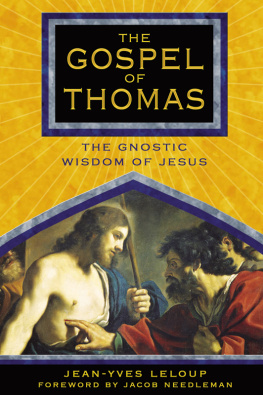JOANNE P. MILLER was brought up in the Protestant tradition and belongs to the Mountain Moon Zen Society, a meditative community in the Sanbo-Zen tradition. Her books include Buddhist Meditation and the Internet: Practices and Possibilities and Julian and the Buddha: Common Points Along the Way. She has a PhD in the sociology of religion with qualifications in systematic theology and Buddhist studies. Her interests lie in the Buddhist and Christian mystical traditions, and the ways in which mystical insight can be applied to everyday life. She is currently teaching study of religion, philosophy and reason, history and English to senior high school students.
ZEN AND THE GOSPEL OF THOMAS
ILLUMINATES SACRED AND MYSTERIOUS WISDOM FROM TWO TRADITIONS, REVEALING HOW THESE PROFOUND TEACHINGS APPLY TO OUR EVERYDAY LIVES AND SPIRITUAL PRACTICE.
I magine that the Buddha asked Jesus to write a text for a Zen audience that would explain his take on the mysteries of his Kingdom. Imagine also that Jesus chose to present it in a set of short, koan-like sayings similar to the classic koan collections of the Zen tradition. This is, in essence, the gnostic Gospel of Thomas. A Zen reading of Thomas allows us to access the living Jesus through Buddhist eyes so we can add to and refine our own practice with his wisdom. Similarly, Thomas can be a gateway for Christians to make use of Zen.
Like koans, the sayings in the Gospel of Thomas ask each of us to discover the same secrets of mystery that Jesus himself discovered and to live in that knowledge from a place of true intimacy.
Join Wisdoms mailing list and find out what to read next!
Receive the latest news and updates from Wisdom, including new releases and special offers.
Click here to sign up.

BIBLIOGRAPHY
Arnold, Kenneth. The Circle of the Way: Reading the Gospel of Thomas as a Christian Text. Cross Currents 51 (2000): 459469.
Bauman, Lynn. The Gospel of Thomas: Wisdom of the Twin. Ashland, Ore.: White Cloud Press, 2012.
Blatz, Beate. The Coptic Gospel of Thomas. In New Testament Apocrypha, Vol. 1:Gospels and Related Writings, edited by W. Schneemelcher, translated by R. McL. Wilson, 110134, Louisville, Ky.: Westminster/John Knox Press, 1991.
Bourgeault, Cynthia. The Wisdom Jesus: Transforming Heart and Mind: A New Perspective on Christ and His Message. Boston: Shambhala Publications, 2011.
Davies, Stevan L. The Gospel of Thomas and Christian Wisdom. New York: Seabury Press, 1983.
Foulk, T. Griffith. The Form and Function of Koan Literature: A Historical Overview. In The Koan: Texts and Contexts in Zen Buddhism, edited by Steven Heine and Dale S. Wright, 1546, New York: Oxford University Press, 2000.
The Gospel of Thomas, translated by Thomas O. Lambdin. In The Nag Hammadi Library in English, edited by James. M. Robinson, 124138, Leiden, the Netherlands: Brill, 1996.
The Gospel of Thomas Collection , The Gnostic Society Library. Accessed October 2016. http://gnosis.org/naghamm/nhl_thomas.htm.
Hori, Victor Sogen. Zen Sand: The Book of Capping Phrases for Koan Practice. Honolulu, Hawaii: Nanzan Library of Asian Religion and Culture, 2010.
The Koan: Texts and Contexts in Zen Buddhism. Edited by Steven Heine and Dale S. Wright, New York: Oxford University Press, 2000.
Leloup, Jean-Yves. The Gospel of Thomas: The Gnostic Wisdom of Jesus. Translated by Joseph Rowe. Rochester, Vt.: Inner Traditions, 2005.
Pagels, Elaine. Beyond Belief: The Secret Gospel of Thomas. New York: Vintage, 2004.
Patterson, Stephen J., and James M. Robinson. The Gospel of Thomas. In The Complete Gospels: Annotated Scholars Version, edited by Robert J. Miller, 301324, Farmington, Minn.: Polebridge Press, 1994.
Reps, Paul, and Nyogen Zenzaki. Zen Flesh, Zen Bones. Boston: Shambhala, 1994.
Suzuki, Daisetzu Teitaro. TheZen Koan as a Means of Attaining Enlightenment. Tokyo: Tuttle, 1994.
Valantasis, Richard. The Gospel of Thomas. London: Routledge, 1997.
PROLOGUE: THE SECRETS OF MYSTERY
These are the hidden sayings that the living Jesus spoke and Didymos Judas Thomas wrote down.
Gospel of Thomas, prologue
The Dharma is profound, difficult to realize, hard to understand, tranquilizing, sweet, not to be grasped by mere logic, subtle, comprehensible only by the wise.
Digha Nikaya (1.28)
T here are two key phrases in the Prologue of Thomas secret sayings (or hidden sayings) and the living Jesus. The first refers to the nature of the search that this gospel encourages and the second to the type of life that wisdom produces.
When it came to secret meanings and secrecy in general, the Buddha had strong reservations and actively spoke against what he called the closed fist of a teacher who holds something essential back. He practiced and encouraged complete transparency in his teaching. To keep secret something that might help others was unthinkable to him the mark of a false teacher. I think the Jesus in Thomas would agree with him.
Yet closed-fist secrecy is not the only type of secrecy there is. Sometimes secret can simply point to a nonconceptual, meditative style and method of encouraging insight of direct experience and this kind of secrecy is in no way the mystical worlds equivalent of a conspiracy. Sometimes secret may merely refer to the mystery of the ultimate. Zen Buddhists will tell you that the eternal is unknown and indescribable except by means of intuitive realization that delivers knowledge outside of words and concepts. For this reason we dont always see it at first glance even though it is, in a sense, hidden in plain sight.
The closed fist of withholding knowledge does not appear in the Gospel of Thomas, even though many of the sayings appear completely unfathomable at first glance. The sayings dont deny us anything, and they dont hold anything back at all and yet they do need effort and insight to be understood. In fact, what may seem like a closed fist in Thomas is more akin to what is known in Zen as a gateless gate, the barrier of the ancestors. The gateless gate is the checking mechanism by which ancient Zen masters ascertained whether their students were really realized or were merely aping Zen and mouthing the sutras.
This barrier is really no barrier, and there is of course no actual gate but we imagine there is because were caught up in intellectualization and concepts. The gate is us, or more specifically, our sense of being separate from everything around us. When we realize this is not true, then we know the hidden secrets for ourselves. When we have gone through the barrier, an old Zen saying goes, we will walk freely between heaven and earth.
The secret sayings of Jesus require us to approach each saying as something to savor and sit with, to contemplate and meditate upon until our understanding matures most fully.
Given the effort to realize mystery, we can also see that in one way secret can in fact mean knowledge confined to and understandable only by a small group of people. This is for a practical and simple reason not many people are willing to travel the difficult road to understanding in the method suggested by Thomas. It just isnt everyones cup of tea. For me Zen is plain and simple, and very practical but to others it can seem obscure, overly rigorous, and unnecessarily complex. One persons sacred text is not always anothers treasure.

